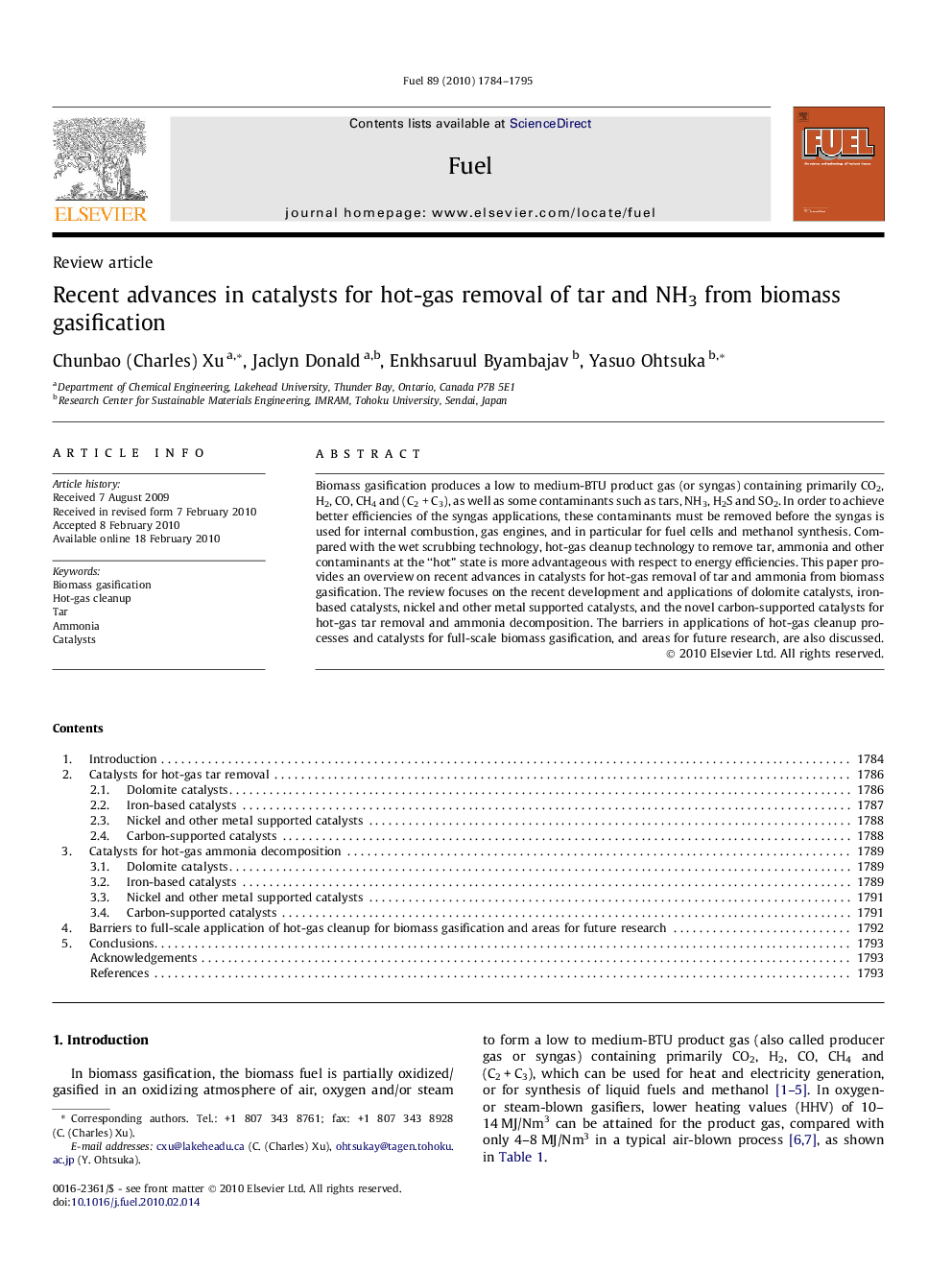| Article ID | Journal | Published Year | Pages | File Type |
|---|---|---|---|---|
| 207145 | Fuel | 2010 | 12 Pages |
Biomass gasification produces a low to medium-BTU product gas (or syngas) containing primarily CO2, H2, CO, CH4 and (C2 + C3), as well as some contaminants such as tars, NH3, H2S and SO2. In order to achieve better efficiencies of the syngas applications, these contaminants must be removed before the syngas is used for internal combustion, gas engines, and in particular for fuel cells and methanol synthesis. Compared with the wet scrubbing technology, hot-gas cleanup technology to remove tar, ammonia and other contaminants at the “hot” state is more advantageous with respect to energy efficiencies. This paper provides an overview on recent advances in catalysts for hot-gas removal of tar and ammonia from biomass gasification. The review focuses on the recent development and applications of dolomite catalysts, iron-based catalysts, nickel and other metal supported catalysts, and the novel carbon-supported catalysts for hot-gas tar removal and ammonia decomposition. The barriers in applications of hot-gas cleanup processes and catalysts for full-scale biomass gasification, and areas for future research, are also discussed.
